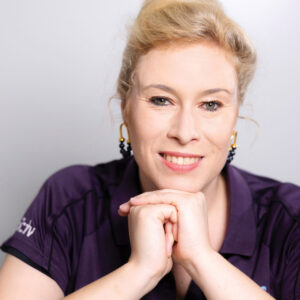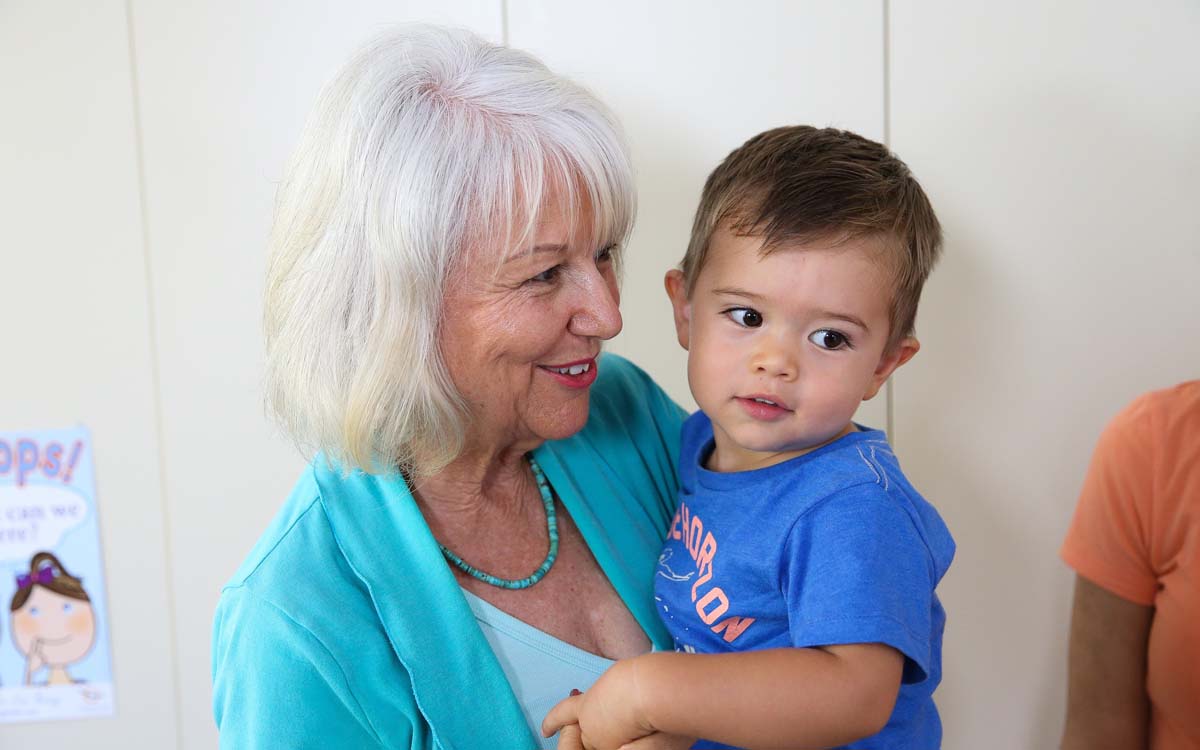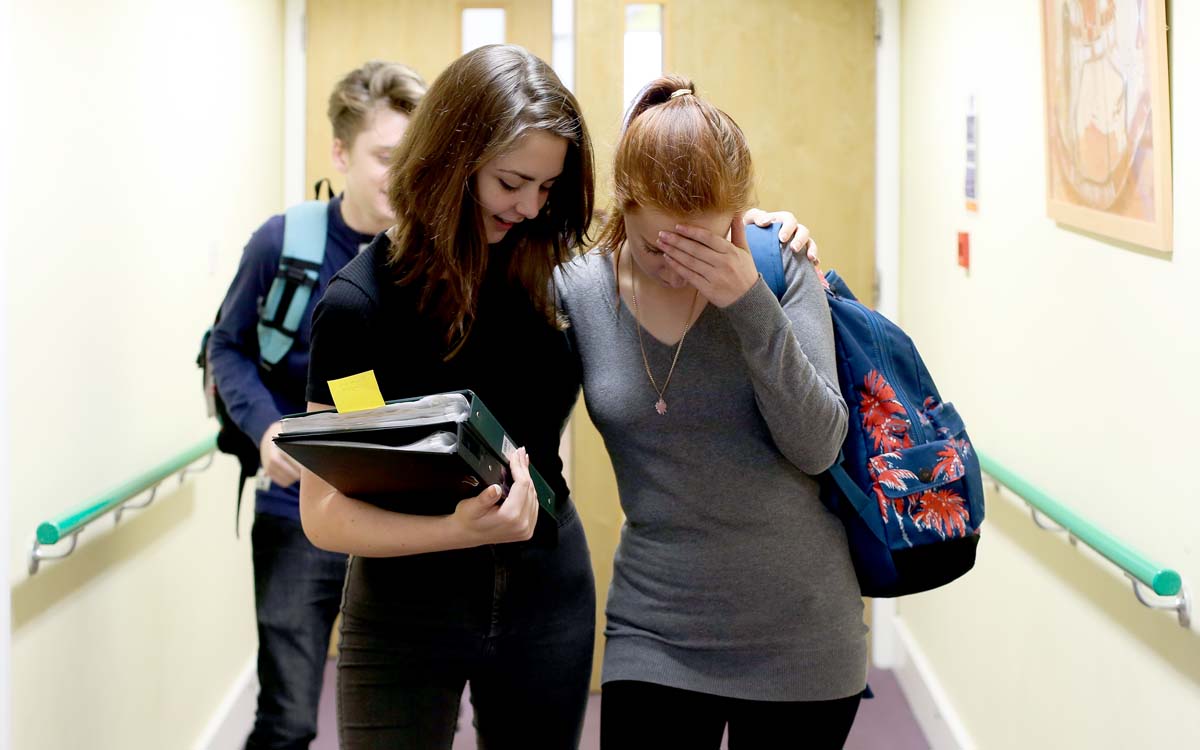FABIC provides services to many children on the autism spectrum to support them, their families and carers to understand and develop the skills to change unwanted behaviours.
FABIC speech pathologist Kathryn offers assessment and therapy to children of all ages with a range of minor through to severe communication difficulties.
Kathryn also offers a specifically tailored for children on the autism spectrum that focuses on the areas of language, problem solving, pragmatic language and social skills. These skills are crucial for successful interactions with peers and adults, interpreting and understanding what is happening in the word and responding to day-to-day occurrences and problems.
Below is a brief description of each of these areas.
Language
Children with autism frequently experience delays in their ability to understand spoken sentences and to use language to express themselves. This can lead to difficulties in areas such as:
- Following instructions
- Participating in conversations
- Answering questions
- Talking about their day
- Being specific and giving enough detail
- Organising and sequencing their thoughts when speaking
- Written work
- Applying the rules of English grammar and many other areas
Speech pathologists can work with children through specific as well as more general conversation based exercises to learn new concepts and words and develop a framework to build each of the above skills and integrate them into their everyday communication.
Family play a vital role in supporting a child to develop their language skills and speech pathologists will also work with them to develop the skills needed to support language growth in all daily interactions.
It is not uncommon for children on the autism spectrum to be late to begin talking or have difficulty developing language as toddlers. Speech pathologists can also work with these children by making it easy, clear and motivating for them to learn and use a new language. Parents can be supported to carry these strategies into their everyday interactions with their toddlers to support them to begin using language and to speed up their language acquisition.
Children who would formerly have received a diagnosis of Asperger’s Syndrome before the diagnostic criteria changed in 2013, often have age appropriate language skills but have difficulty using their language in functional settings and interactions. Hence, these children will also have difficulties being specific, organising their language and using language to deliver a clear message. Speech pathologists can support these children to develop their ability to determine the information another person needs to know and how to deliver their message in a way that is easily understood by listeners.
Problem solving (higher level language)
Problem solving skills are the skills needed to understand what is happening in the world around you and respond in the most appropriate way. We are constantly using these skills in social interactions to interpret the unspoken messages given by the other person (e.g. facial expression and sarcasm) as well as environmental cues that affect the interaction.The choices we make in social interactions and the way that we respond to what is delivered to us is also governed by our ability to use our problem solving skills.
Below is a brief description of some of the problem solving skills needed for social interactions and daily life:
- Making inferences: The ability to interpret what is happening within interactions and the environment and apply the appropriate meaning. For example, if you put your child’s packed lunch on the end of the bench, they can infer that they need to take their lunch to school. Similarly, if someone narrows their eyes and wrinkles up their forehead you can infer that the last thing you said was confusing.
- Generating ideas for solutions: The ability to come up with a series of appropriate and plausible ideas for solutions to solve a problem.
- Making predictions: The ability to look ahead and make a reasonable guess at what will happen. This skill is one that we use when making decisions. Without even registering it, we make decisions based on what we think is most likely to happen. Children on the autism spectrum frequently have trouble predicting and so will make decisions without considering what is likely to happen and are then surprised by the natural consequences.
- Determining the cause of a problem: The ability to work out why a problem has occurred and your part in it.
- Solving problems: Putting all the known information together with past experiences to determine the best way to solve a problem.
Children with an ASD generally have difficulty with at least one of these skills. A speech pathologist can teach them to recognise and interpret the cues around them and how to respond appropriately. The process of developing problem solving skills and strategies can also support children to deal with situations as they come up at school and home.
Pragmatic language and social skills
A speech pathologist can support children with an ASD to develop their ability to use their communication in social interactions (e.g. asking for help, participating appropriately in conversation, identifying when your message hasn’t been understood and modifying it, adjusting your communication for different people and settings, responding appropriately to communication from others, etc).
Speech pathologists also teach particular social skills that a child is having difficulty with and supports them to integrate those skills into their daily life (e.g. entering play, protesting appropriately, etc).
Play skills
Speech pathologists, as well as occupational therapists, can support the development of play skills. Children with autism frequently experience difficulty playing and need support to develop these skills as play is the medium through which they interact with their peers and develop their social and conversational skills.
Children with autism might be able to recreate imaginative scenarios that they have seen on television or witnessed another person doing, but they often have difficulty generating their own ideas and building on them. Some children will demonstrate minimal if any imaginative play and will primarily interact with toys by moving them around or organising them. This skill can be systematically taught so that children can begin to generate their own scenarios and develop ideas presented by someone else.
Because children with autism can become anxious when their picture of how something needs to be done isn’t met, they can be inflexible in their play and have difficulty accepting the ideas of another person. This, as well as other skills needed to work and compromise with other children within play can also be systematically developed.
FABIC’s Speech Pathologist, Kathryn has extensive experience working in the field of Autism. She is able to provide services for all of the areas outlined above as well as any other communication concerns.
For more info or to book a consultation with Kathryn, contact FABIC







